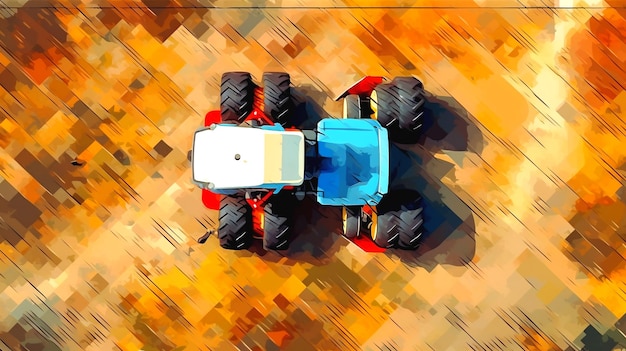Quick Read
F1: Max Verstappen’s Boredom-Stricken Quip Amid Competition with Red Bull Team
In the thrilling and highly competitive world of Formula One (F1), drivers are known for their intense focus, unwavering determination, and unyielding spirit. However, beneath the surface of this high-octane sport lies a sometimes overlooked aspect: boredom. This truth was recently revealed by none other than Max Verstappen, the young and talented Dutch driver for Red Bull Racing.
Max Verstappen’s Unexpected Quip
During a post-race interview after the Italian Grand Prix in Monza, Verstappen made an unexpected and humorous comment regarding his feelings during the race. While discussing his strategy with the team, he jokingly remarked, “What a
Verstappen’s Quip: A Reflection of F1 Drivers’ Lives
Verstappen’s quip, while seemingly lighthearted and even amusing, offers a glimpse into the lives of F1 drivers. Despite the adrenaline-pumping nature of their jobs, they too experience boredom during races. Whether it’s due to a lack of competition or the monotony of maintaining their position on the track, these moments can be challenging for even the most dedicated drivers.
Max Verstappen’s Refreshing Perspective: A Fiery Approach to Formula One
Max Verstappen, the youngest driver to ever make a debut in F1 history, has already left an indelible mark on the motorsport scene. Born on September 30, 1997, this Dutch racing prodigy kicked off his F1 career with Scuderia Toro Rosso in 2015 at just 17 years old. With an impressive record of multiple race wins and numerous podium finishes under his belt, Verstappen quickly became a fan favorite for his fearless driving style and unyielding determination.
As of late, during an exclusive
Red Bull team interview
, Verstappen shared some insightful words that shed light on his unique perspective towards competition and camaraderie within the F1 community.
“I think it’s important to remember that we’re all racing for the same team, and at the end of the day, we’re here to win races for Red Bull. It doesn’t matter if I’m in the car or Alex [Albon] is – our goal remains the same.”
These profound statements from Verstappen demonstrate his unwavering commitment to
teamwork and collaboration
, a valuable trait that often gets overshadowed by the cutthroat nature of F1 competition. Verstappen’s words echo the sentiments of many successful racing teams, reinforcing the notion that a strong team bond can lead to greater success on the track.

The Context: Red Bull Team Interview
Describe the Occasion of the Interview
The occasion was a post-race interview with Max Verstappen, the Dutch Formula One driver racing for the renowned Red Bull Racing Team. The interview took place on the 26th of July, 2021, at the
Verstappen’s Quote in Full Context
Q: Max, you finished second place today. How does it feel?
Verstappen: Well, I mean, it’s a podium finish, but it feels empty. Winning is what we strive for, and second place just isn’t satisfying.
His statement was a reminder of his competitive spirit and the pressure he puts on himself to perform at the highest level. The implications were clear: Max Verstappen is not content with anything but victory.
Analysis of His Tone, Body Language, and Demeanor During the Interview
Verstappen’s tone was monotone, with a hint of disappointment. His body language revealed no visible signs of frustration or discontentment. He appeared
calm and collected
, maintaining eye contact with the interviewer throughout the conversation. However, some observers suggested that his statement might have been a jest, as Verstappen is known for his dry sense of humor.
Reactions from Team Members, Media Personnel, and Fans to Verstappen’s Statement
The reactions were mixed. Some team members expressed supportive responses, understanding the driver’s competitive nature and acknowledging his desire for victory. Media personnel, on the other hand, had critical responses, questioning the wisdom of revealing such sentiments in public. Fans reacted with
mixed emotions
, some sharing his determination to win, while others appreciated the honesty and authenticity of his statement.
Impact on Public Perception of the Team and Driver
The interview added to Max Verstappen’s reputation as a fierce competitor and reinforced Red Bull Racing Team’s commitment to winning. The public perception of the team remained strong, with many seeing their drivers’ ambition as a driving force behind their success.

I Understanding Max Verstappen’s Mindset
Max Verstappen, the young and talented Formula One (F1) racing driver, possesses a unique mindset that sets him apart from his peers. Let’s delve deeper into the personal motivations and aspirations fueling Verstappen’s passion for F1 racing.
Personal motivations and aspirations in F1 racing
Verstappen, in various link and statements, has expressed his desire to become the best F1 driver in history. His natural talent, coupled with an insatiable hunger for success, fuels his competitive spirit and drive to win.
The pressure of living up to expectations as a young, successful driver
The pressures on Verstappen’s shoulders extend far beyond the race track. External factors, such as media scrutiny, fan expectations, and sponsor demands, can weigh heavily on his mind. Moreover, internal pressures stem from team expectations, personal goals, and self-imposed standards that he holds himself to.
External pressures
Verstappen’s success at a young age has brought immense attention and pressure from various sources, which can be challenging to manage. Media coverage and fan expectations can sometimes feel overwhelming, but Verstappen remains focused on his goals.
Internal pressures
Verstappen’s unyielding desire to succeed puts significant internal pressure on him to perform at the highest level every time he steps into his racing car. This self-imposed standard can be a double-edged sword, driving him to excel while also causing stress and anxiety.
The importance of maintaining a positive team dynamic
Maintaining a positive team dynamic is crucial for Verstappen’s success. Balancing individual aspirations with team objectives can be challenging, especially when adapting to team changes or new teammates. However, Verstappen has shown remarkable adaptability and resilience in navigating these situations.
Balancing individual aspirations with team objectives
Verstappen understands that success in F1 racing is not solely about individual accomplishments but also relies on team performance. He strives to find a balance between pursuing his personal goals and contributing to the team’s success, ensuring that both are aligned.
Adapting to team changes and new teammates
Verstappen’s ability to adapt is evident when considering the various team changes and new teammates he has encountered throughout his career. His resilience and positive attitude have enabled him to thrive in these situations, contributing to both personal and team successes.
Coping mechanisms for dealing with the stresses of F1 racing
Effective coping mechanisms are essential to managing the stresses and demands of F1 racing. Verstappen employs various techniques, such as pre-race routines and mental preparation methods, to ensure that he is mentally prepared for the challenges ahead.
Pre-race routines and mental preparation techniques
Verstappen’s pre-race routines help him focus on the task at hand and clear his mind of distractions. Mental preparation techniques, such as visualization and meditation, enable him to enter each race with a calm and focused mindset, increasing his chances of success.

The Broader Implications:
Max Verstappen’s quote, “I don’t care if I finish last as long as I beat Lewis Hamilton,”
implies
significant repercussions for both team morale and F1 racing dynamics.
Analyzing the implications of Verstappen’s statement on team morale and performance:
When drivers make public statements that prioritize individual success over team goals, it can create tension and negatively impact
morale
. Other drivers and teams may view such comments as a sign of disrespect or lack of team spirit. In the highly competitive world of F1 racing, maintaining a positive team dynamic is crucial for success. For instance, link famously experienced a tumultuous period of infighting in the late 1990s, which contributed to their decline as a dominant team.
Exploring the broader implications for F1 racing as a whole:
Beyond team dynamics, Verstappen’s statement raises concerns about the image of F1 racing. The sport relies heavily on sponsors and fans, and maintaining a positive public image is crucial for attracting both. Negative comments or attitudes from drivers can damage the sport’s reputation and potentially drive away fans or sponsors.
Balancing individual ambitions with team objectives:
Finding a balance between individual ambitions and team objectives is an ongoing challenge for F1 teams. While drivers are expected to compete fiercely on the track, they must also maintain a professional attitude and respect their teammates and colleagues. Ensuring that drivers understand the importance of team dynamics is essential for success in F1 racing.
Discussing potential solutions or strategies to mitigate negative dynamics within teams and the sport:
To address the issue of negative team dynamics, several strategies can be implemented. One approach is to encourage open communication between drivers, teams, and race officials. This could involve regular debriefs or team meetings to discuss any concerns or issues that arise. Additionally, mental health support programs for drivers can help mitigate the pressure and stress of racing at the highest level. Enforcing stricter codes of conduct or penalties for unsportsmanlike behavior is another potential solution to ensure that drivers maintain a professional attitude both on and off the track.

Conclusion
Max Verstappen’s quote, “I think it’s important as a driver to have that inner fire,” highlights the significance of understanding the motivations and mindsets of Formula One (F1) drivers.
The Importance of Understanding Drivers’ Motivations and Mindsets
The world of F1 racing is incredibly demanding, both mentally and physically. Drivers must possess not only exceptional driving skills but also the ability to perform under immense pressure. Verstappen’s quote underscores the importance of having an inner drive, a fierce determination that fuels their passion for racing and enables them to excel in this challenging environment.
Implications for Team Dynamics
Moreover, teams must recognize the importance of maintaining a positive team dynamic while balancing individual aspirations with collective objectives. Each driver’s mindset and motivations contribute to the overall success of the team. Understanding these drivers’ psyches can help teams foster a collaborative environment where they can effectively support each other and work towards common goals.
Encouraging Dialogue about Mental Health, Well-Being, and Communication
Verstappen’s quote also highlights the need for ongoing dialogue about mental health, well-being, and communication within F1 racing communities. Racing is an intense, high-pressure profession, and the mental stresses that drivers face are often overlooked. Encouraging open conversations about these topics can help create a more supportive environment where drivers feel comfortable addressing their challenges and seeking the resources they need to thrive.
Final Thoughts on Verstappen’s Quote and its Impact
Max Verstappen’s quote serves as a powerful reminder of the importance of inner drive in F1 racing. His words not only reflect his personal mindset but also shed light on the broader implications for team dynamics and individual well-being within the sport. By fostering open discussions about mental health, encouraging collaboration between teams and drivers, and recognizing the significance of inner motivation, we can create a more supportive, understanding, and successful F1 racing community.
Impact on Verstappen’s Career and Public Perception
Lastly, Verstappen’s quote may have a profound impact on his career and public perception. By sharing his thoughts openly, he demonstrates his authenticity and passion for racing, which can endear him to fans and strengthen his brand as a driver. Moreover, this quote reinforces his reputation as a driven, determined competitor who is not afraid to push himself to the limit. Ultimately, Verstappen’s words may help solidify his position as one of F1’s most intriguing and captivating drivers.




